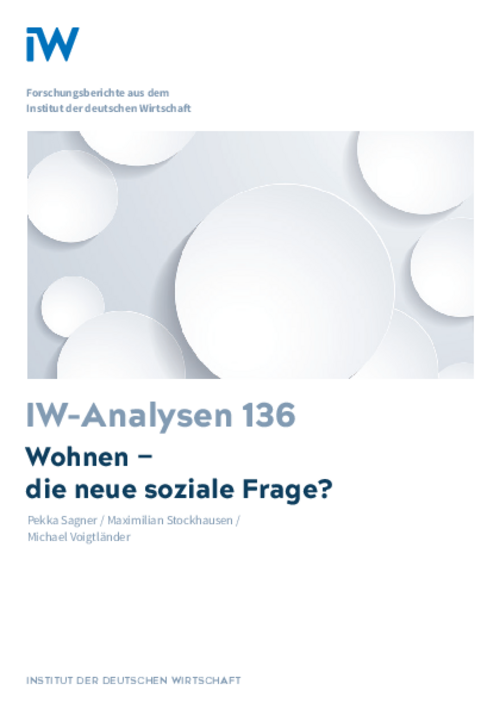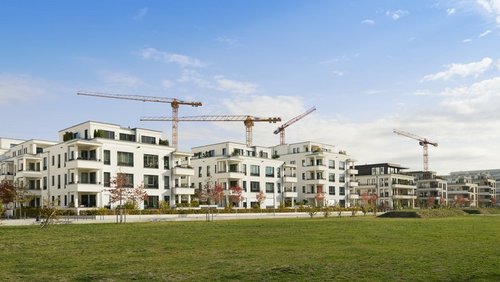The sharp rise in rents and housing prices in the 2010s, particularly in the major conurbations, has led some to assert that housing is “the social question of our time”.

Housing – the new social question?
IW-Analyse

The sharp rise in rents and housing prices in the 2010s, particularly in the major conurbations, has led some to assert that housing is “the social question of our time”.
This paper uses the Socio-Economic Panel (SOEP) as a basis for longitudinal and cross-sectional analyses of the development of the housing cost burden, and also explores the historical significance of the social question. Overall, it reveals that a booming labour market combined with a reduction in living space has kept the housing cost burden constant for many households. Only for a few occupants has the burden actually increased to any noticeable extent, and even then it has been accompanied by a simultaneous increase in satisfaction with their accommodation. Yet if housing cannot be described as the social issue of our time, many households still need support and their number could rise, particularly in view of the virus-related economic crisis of 2020. The instruments available for this purpose, such as housing benefit and subsidised housing, thus need to be strengthened. However, especially in the latter case, attention must be paid to improving their targeting.

Pekka Sagner / Maximilian Stockhausen / Michael Voigtländer: Wohnen – die neue soziale Frage?
IW-Analyse

More on the topic

Options for affordable new construction
Due to the mix of higher interest rates and increased construction costs, new residential construction in Germany is in a very difficult situation.
IW
Housing for the Elderly
Many older people share the desire to be able to live independently in the familiar surroundings of their own home for as long as possible. Accidents and illness, however, can soon put an end to such autonomy.
IW